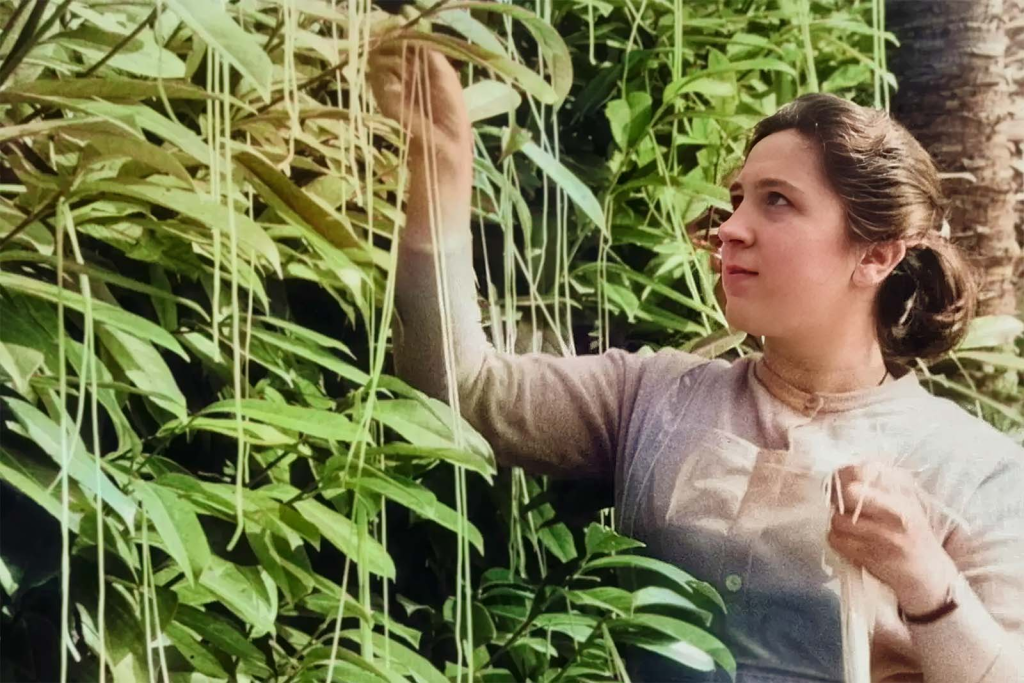Imagine turning on your television and seeing a family in the picturesque Swiss countryside delicately picking strands of spaghetti from a tree. Sounds absurd, right? Yet, on April 1, 1957, the BBC aired a segment on its show Panorama that did just that. The result? Nationwide confusion, laughter, and debates. This prank became one of the most legendary April Fools’ jokes of all time.

How the Hoax Unfolded: A Trickery Masterpiece
The mastermind behind this elaborate prank was Charles de Jaeger, a cameraman with a love for practical jokes. His childhood teacher once remarked that his class was so gullible they would believe spaghetti grew on trees. Decades later, de Jaeger turned this idea into reality.
With the upcoming April Fool’s Day coinciding with a Monday broadcast of Panorama, de Jaeger seized the opportunity. He proposed the idea to Michael Peacock, the show’s editor, and managed to get a budget of just £100. De Jaeger promised it would be both low-cost and hilarious.
Video: BBC: Spaghetti-Harvest in Ticino
Setting the Stage for the Great Spaghetti Harvest
The hoax took place in Castiglione, a tranquil town along the shores of Lake Lugano in Switzerland. De Jaeger’s plan involved hanging 20 pounds of raw homemade spaghetti from the branches of laurel trees, creating the illusion of a “spaghetti harvest.”
To make the scene convincing, local women dressed in traditional Swiss attire were recruited to “harvest” the spaghetti. They placed the pasta in wicker baskets and spread it on the ground to “dry” in the sun. This picturesque setup gave the prank a charming yet believable touch.
Richard Dimbleby’s Role: The Prank’s Authentic Voice
One of the reasons the hoax was so effective was the involvement of Richard Dimbleby, a highly respected broadcaster known for his serious demeanor. His authoritative tone added an air of authenticity to the absurd claim that spaghetti grew on trees.
Dimbleby narrated the segment with his usual seriousness, describing how Swiss farmers were anticipating a bumper spaghetti harvest thanks to the eradication of the dreaded “spaghetti weevil.” His calm, confident delivery made even the most skeptical viewers question their knowledge of pasta production.
The Aftermath: National Confusion and Outrage

When the segment aired, an estimated eight million people tuned in. The reactions were immediate and varied. Some viewers, especially those unfamiliar with pasta production, believed the story entirely. Calls flooded into the BBC from curious individuals wanting to grow their own spaghetti trees.
The BBC played along, advising viewers to “place a sprig of spaghetti in a tin of tomato sauce and hope for the best.” Meanwhile, families across Britain found themselves debating the validity of the report. Some even resorted to checking encyclopedias to confirm whether spaghetti could indeed grow on trees.
The Power of Media: A Lesson in Critical Thinking
This prank was more than just a lighthearted joke—it was a social experiment that revealed the power of media to shape perceptions. In the 1950s, spaghetti was still considered an exotic dish in Britain. Most households bought it canned rather than fresh, so the concept of growing it on trees wasn’t entirely implausible to some.
Even the BBC’s director-general, Sir Ian Jacob, was initially fooled. He and his wife searched the Encyclopedia Britannica for answers, only to realize they had been duped. Despite the initial confusion, Jacob later praised the prank as a delightful piece of television.
Criticism and Backlash: Not Everyone Was Amused

Although many found the prank harmless and amusing, others felt betrayed by the BBC. Some critics accused the network of undermining its credibility. After all, a trusted broadcaster had presented false information as fact.
However, David Wheeler, the program’s producer, defended the stunt, stating that it served as a reminder not to believe everything seen on television. He argued that encouraging viewers to think critically was a valuable lesson.
The Legacy of the Spaghetti Tree Hoax
Today, the Spaghetti Tree Hoax remains one of the most famous April Fools’ pranks in history. It highlights how easily misinformation can spread when presented by a credible source. The prank’s success relied on two key factors: a serious delivery by a trusted broadcaster and the public’s limited knowledge of pasta production at the time.
In retrospect, the hoax is a reminder of how important it is to question what we see and hear, especially when the source appears reputable. It also serves as a testament to the power of media to influence public perception, even with something as absurd as spaghetti trees.
Final Thoughts: A Lighthearted Lesson in Media Literacy

While the Spaghetti Tree Hoax might seem trivial today, it was a wake-up call for many back in 1957. It taught viewers that even the most respected broadcasters could occasionally have a bit of fun at their expense. The prank also laid the groundwork for how April Fools’ jokes could be executed on a grand scale.
As we continue to navigate an increasingly complex media landscape, the lesson remains clear: Always question the source, and sometimes, just sometimes, a spaghetti tree might just be too good to be true


